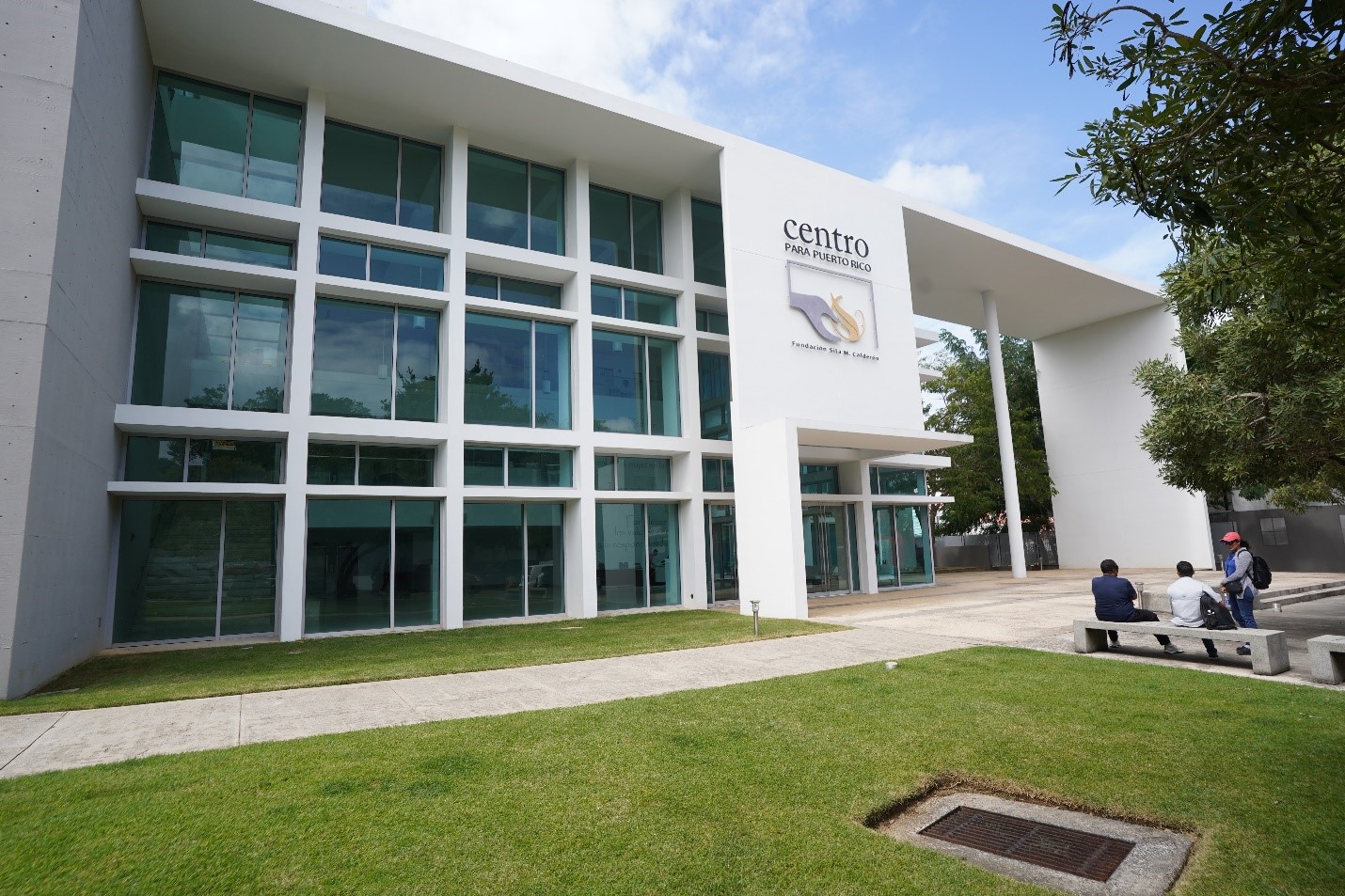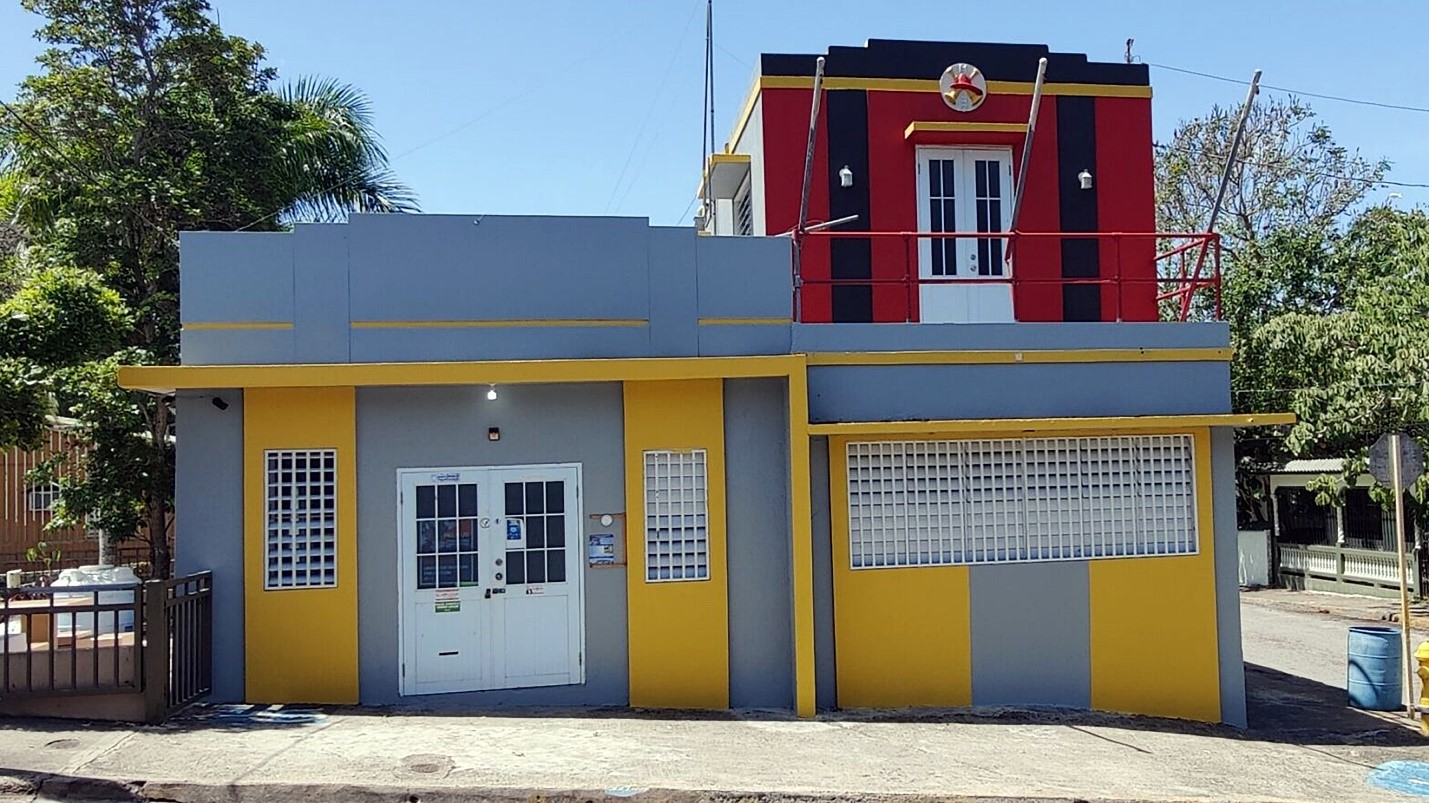Guaynabo, Puerto Rico – The Federal Emergency Management Agency (FEMA) supports the work of several nonprofit organizations by allocating funds for projects that will reduce future damage to these institutions. Through its Hazard Mitigation Grant Program, the agency's allocations and technical assistance will ensure the continuity of services in these places in the face of future natural disasters.
FEMA will provide funding to Centro Para Puerto Rico — the operational branch of the Sila María Calderón Foundation — for a solar-powered energy backup system that will provide resilience to eight Community Technology Centers (CTCs) located in Aguada, Arecibo, Canóvanas, Lajas, Loíza, Ponce, Rincón and San Germán.
The agency will also fund the design and construction of a seismic retrofit project to reinforce an elevated potable water tank at San Lucas Memorial Hospital in Ponce.
“These projects represent FEMA’s vision for a strong and resilient Puerto Rico. While there are hazards that we cannot prevent or avoid, we certainly can minimize the consequences of natural disasters through protective measures such as these,” said Federal Disaster Recovery Coordinator José G. Baquero.
CTCs support residents who have very limited knowledge about computers and online activity by helping them bridge the digital gap. These centers also provide services that include emergency response training and commodities distribution.
While Centro Para Puerto Rico supports over 300 CTCs throughout the island, the agency funds will provide solar power at eight CTCs that have an immediate need for continuity in their emergency services, said Evelyn Nieves, Administration and Human Resources director at Fundación Sila María Calderón. “In case of an emergency, such as Hurricane María, from these centers we can continue providing food services, training and [help residents] complete FEMA disaster assistance applications,” she said.
For his part, Israel Román Martínez, director of the social support group Surcando la Historia at Calle Abajo community in Lajas, said that adults well into their 70s have taken their first steps into the digital world thanks to the Lajas CTC.
“One of our participants, who is about 80 years old, didn’t know a thing about technology. We taught him how to power up the computer, how to work on it and how to write with it. He’s a natural born historian and, all those stories he wrote on paper, he’s now writing them in a computer.”
FEMA awarded nearly $50,000 for the first phase of this project. The total cost has a maximum funding of $1 million.
Meanwhile and to the south of the island, Hospital San Lucas in Ponce has been serving nearby residents since 1907. While past hurricanes and the 2020 earthquakes did not cause irreparable damage to its structure, the hospital’s administration is concerned about a 333,000-gallon elevated potable water tank built in 1954, that is showing signs of deterioration.
“The tank shows signs of corrosion, lack of adequate support and vulnerabilities. If it’s not repaired, there is no other structure that can provide the same water pressure and storage capacity. The risks of losing this structure could be catastrophic,” explained Juan Salazar Trogolo, chief executive officer at San Lucas Episcopal Health System.
FEMA awarded $63,000 for phase one of this project and will obligate nearly $1.3 million in total for all the phases of this work.
“Once the retrofit is complete, this structure will remain serviceable for 30 years, with annual maintenance and minor repairs as needed,” said Salazar.
Hospital San Lucas receives over 75,000 patients per year from Ponce and other nine neighboring municipalities; while providing medical training to over 130 medical school residents.
For his part, the executive director of the Central Office for Recovery, Reconstruction and Resiliency (COR3), Manuel A. Laboy Rivera, said that “both the community technology centers and the San Lucas Hospital in Ponce are characterized for being a community assistance network. The works approved by FEMA will address the factors that put these infrastructures at risk, as well as the operational continuity of both institutions. At COR3 we are committed to assisting them in the technical matters so that they can direct and complete these important works.”
To date, FEMA has awarded more than $3 billion for 198 projects under FEMA’s Hazard Mitigation Grant Program to strengthen Puerto Rico’s resilience in future atmospheric events.
For more information about Puerto Rico’s recovery, visit fema.gov/disaster/4339, fema.gov/disaster/4473 and recovery.pr. Follow us on our social media at Facebook.com/FEMAPuertoRico, Facebook.com/COR3pr and Twitter @COR3pr.
Centro Para Puerto Rico, San Juan, PR

San Juan, Puerto Rico (January 25, 2024) - FEMA will provide funding to Centro Para Puerto Rico for a solar-powered energy backup system that will provide resilience to eight Community Technological Centers (CTCs) located in Aguada, Arecibo, Canóvanas, Lajas, Loíza, Ponce, Rincón and San Germán. Photo FEMA/Eduardo Martinez
The Community Technology Center in Lajas, PR

Lajas, Puerto Rico – The Community Technological Center located at Calle Abajo community in Lajas, PR is one of the eight centers where a solar-powered energy backup system will be provided by the Centro Para Puerto Rico through a FEMA award.


